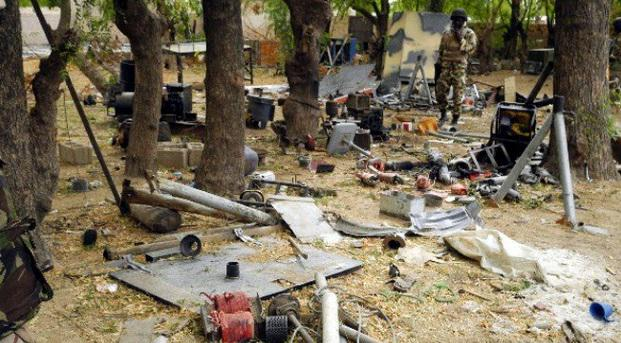A Federal High Court sitting in Abuja on Friday fixed Feb. 21 for the adoption of originating summons and for ruling on the preliminary objections canvassed by counsel to parties in the suit filed by the Peoples Democratic Party, PDP.
The PDP, through an originating summons, had filed the suit seeking to stop any leadership change in the House of Representatives.
It’s majority status was under threat following the wave of carpet-cross from within its fold to the opposition All Progressive Congress, APC, heightening fears that the PDP leadership in the House may be impeached.
Justice Adeniyi Ademola adjourned the case after hearing the reply of PDP’s counsel, Mr Yunus Usman (SAN) to the preliminary objection of the defence counsel challenging the court’s jurisdiction to hear the case.
Earlier, counsels to defendant, Mr. Mahmoud Magaji, Mr. Niyi Akintola, Mr. Jibrin Okutepa and Mr. James Ocholi, all Senior Advocates of Nigeria, had prayed the court to dismiss the suit, arguing that it lacked jurisdiction and locus standi to entertain it.
In his reply at the resumed hearing on Friday, Mr. Usman, urged the court to strike out the application brought by counsel to the defendants, arguing that “the counsel’s application was an abuse of court process, lacked merit and was tantamount to duplication of court process.”
Usman further argued that James Ocholi had filed similar application for the same defendants on the same date which was pending before Justice Ahmed Mohammed in a court of equal jurisdiction.
“The law is that no party is allowed to pursue two applications simultaneously and in such situations both applications must be struck out,” he argued.
Usman further urged the court to discountenance Ocholi’s opposition to the PDP’s process which came by way of an originating summons.
“It is our humble submission that there is a real threat by the defendants which is to change the House leadership against PDP’s interest and we don’t have to wait for them to tighten the noose. We submit that our originating summons is competent and does not breach the provisions of legislative powers and privileges as claimed by learned counsel to the said defendants,” Usman said.
The PDP’s counsel further asked the court to dismiss the arguments of the defendants’ counsel challenging the PDP’s locus standi in a legislative matter. “In so far as political parties are mandated to observe and ensure observance of the constitution, the PDP has locus standi to challenge any breach or attempt to breach the constitution,” he said.
Replying on point of law, Mr Mahmoud Magaji, SAN, said that it was trite that when you have a common defence processes can flow in the same direction. “The arsenal or attack is coming from one direction and so we need a common shield to defend ourselves against the plaintiffs,” Magaji argued.
Magaji, therefore, prayed the court to uphold his earlier preliminary objection to the effect that the court lacked jurisdiction to entertain the plaintiff’s suit.
Mr Niyi Akintola, SAN, on his part argued that the provisions of Sections 23 and 30 of legislative powers and privileges had not been whittled down by sections 4 and 8 of the Constitution.
He said that the PDP should have waited for the House to effect the speculative and anticipated change in the House leadership before going to court to challenge it.
Both Akintola and Magaji agreed in their submission on preliminary and jurisdiction that the case was not justiciable and urged the court to dismiss the case for lack of jurisdiction.
He said that by the provisions of section 122 (2c) of the Evidence Act, the judge is supposed to take judicial notice of the fact that the PDP already had assumed majority in House membership. “By the provisions of this section of the Act, a judge is supposed to take judicial notice of the developments in the National Assembly and dismiss the suit accordingly,” he said.
Mr James Ocholi, who was represented, and Sebastine Hon, both defendants’ counsel agreed with Akintola and Magaji in their argument that the court lacked jurisdiction to hear the suit.













